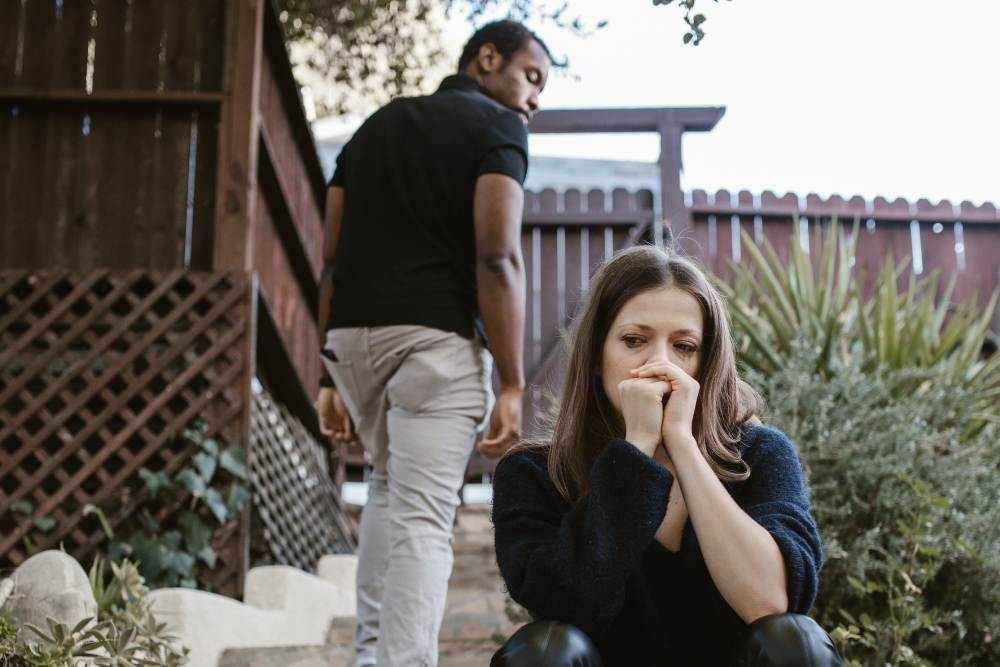Have you noticed that there is something off about your relationship but you can’t put your finger on it? Do you find yourself coming back to your partner, even when those red flags are waving right in front of your face? You may have once wondered why people struggle to leave difficult relationships. Now you know why. It is caused by something called “trauma bonding,” and it can be both challenging and painful to free yourself from such a bond.
What Is Trauma Bonding?
You have heard of Stockholm syndrome. Long before trauma bonding was the term, Stockholm syndrome was used to describe this particular form of attachment. Trauma bonding occurs when you become attached to the person who is abusing you in some way. The relationship between you and the abuser is more of a cycle, one where something terrible happens which is then followed by positive reinforcement. That positive reinforcement can be anything from regretful apologies to much greater expressions of love.
What Is Trauma Bonding Not?
The term “trauma bonding” has become something of a buzzword, leading to widespread misunderstanding and misuse.
People tend to think trauma bonding is bonding over a shared trauma, including similar experiences or hardships. It is not that.
Trauma bonding is the result of abuse, such as emotional or sexual abuse or domestic violence.
Who Came Up With The Term “Trauma Bonding”?
Patrick Carnes, the founder of the International Institute for Trauma and Addiction Professionals (IITAP), came up with the term in 1997. The theory was thoroughly outlined in Carnes’s presentation titled, “Trauma Bonds, Why People Bond To Those That Hurt Them.”
Carnes stated that trauma bonding is the way the human brain deals with and adapts to trauma. How deep the trauma bonding goes depends on the severity of the trauma and the duration of it.
Signs Of Trauma Bonding
Unfortunately, trauma bonding is not something that happens in the blink of an eye. It may not always be noticeable to the victims or their loved ones. However, there are some common signs that point out the potential for abuse or trauma bonding:
You Look Past Red Flags
In the beginning, the honeymoon phase is so promising and intoxicating, you cannot see the things they are doing wrong. Your partner may open up the relationship with excessive love-bombing, promises, and twinning tendencies (interest in the same things as you). However, as soon as you cross a boundary or go against their wishes, the mask of perfection slips.
You Defend Poor Behavior
Take a moment to consider healthy relationships. Accountability and communication take place to ensure that both partners are playing their part. They own up to the mistakes they make and do not blame others for their actions. In a trauma bond, you will rush to defend bad behavior, often unthinkingly.
You might say things like:
- It’s my fault they reacted that way.
- I deserved what they said about me.
- They love me, so they are hard on me.
They Abuse And Criticize You
In a trauma bond, the abusive partner will wait until they have you on their web before they begin picking you apart. They will identify some of your qualities as problematic. After all the love-bombing, this will be jarring and troubling, which is why abusers often wait until you trust them to hurt you.
This often happens during intense disagreements or arguments. The abuser will mention all the things they have done, setting up emotional dependency, and manipulate your emotions so that you end up feeling like you have to apologize for calling them out.
In the end, you may start to think:
- Wow, they love me this much even though I mess up all the time.
- They know what’s best for me.
- I should never have questioned how much they love me.
Gaslighting
Gaslighting is a form of manipulation that happens with trauma bonds. Someone who gaslights will never take responsibility for their actions; they would rather blame someone else for their problems.
Within a trauma bond, the abuser has isolated you, making you the only support you have. When they start gaslighting you, it is to make you question your identity.
Avoid Communication
During this cycle of love-bombing, trust-building, criticism, and manipulation, there will be some happy moments. However, you will find that you’re constantly exhausted. You don’t have the energy to deal with the rest of your life, because this toxic relationship is playing with your mental and physical health.
Because of that, you worry about sharing your thoughts. You don’t know how to tell others what is happening, and you feel powerless.
Keep in mind that healthy relationships should never leave you feeling tired. You should be meeting each other’s needs and openly discussing things. You also should not feel guilty for having a life outside of your relationship.
How To Break Free Of Trauma Bonding
A trauma bond can be addictive; it is a cycle that is exceedingly hard to break. When you recognize the signs, though, you can start working towards freeing yourself from them. One of the things you will immediately need is support, such as a hotline, or someone to help you physically get out the door.
Staying safe is the primary goal when breaking free of a trauma bond. Following that, you will want to contact a therapist who specializes in trauma or abuse. Whatever you feel—guilty, disgust, anger, or grief—is valid. Your therapist can help you sort through these thoughts and feelings, and they can help you heal. There is tremendous potential for growth, even after intense trauma.
Get Stronger With Couples Academy
Trauma bonding is a form of abuse that can happen over a long period of time without the victim or family noticing. It is a cycle of abuse coupled with positive reinforcement, like love bombing. Breaking loose of a trauma bond can be difficult, but it is possible when you have assistance.
If you have dealt with a trauma bond in the past and would like to heal and form stronger, healthier connections with your current or future partner, get in touch with Couples Academy today. We want to see you grow.



